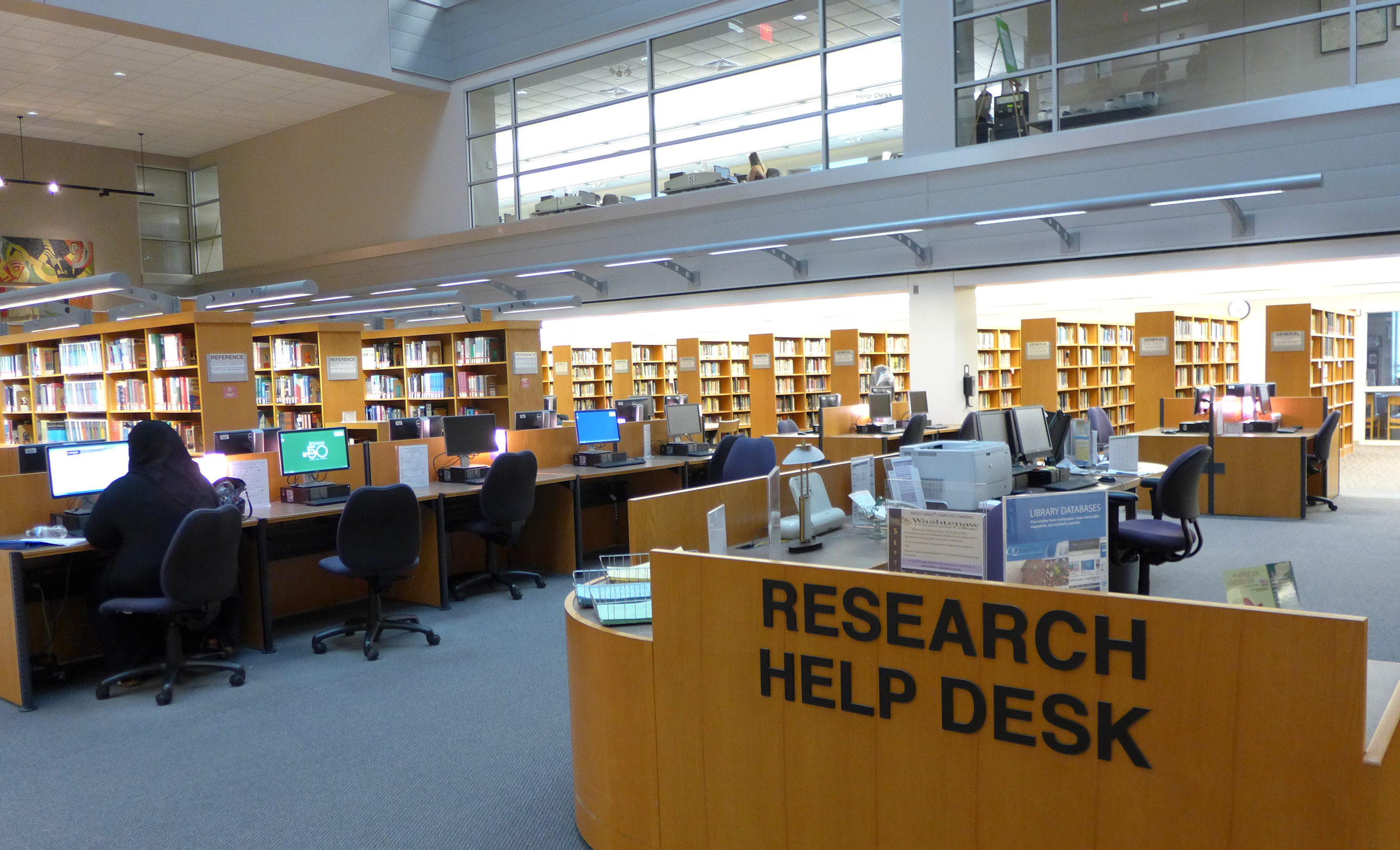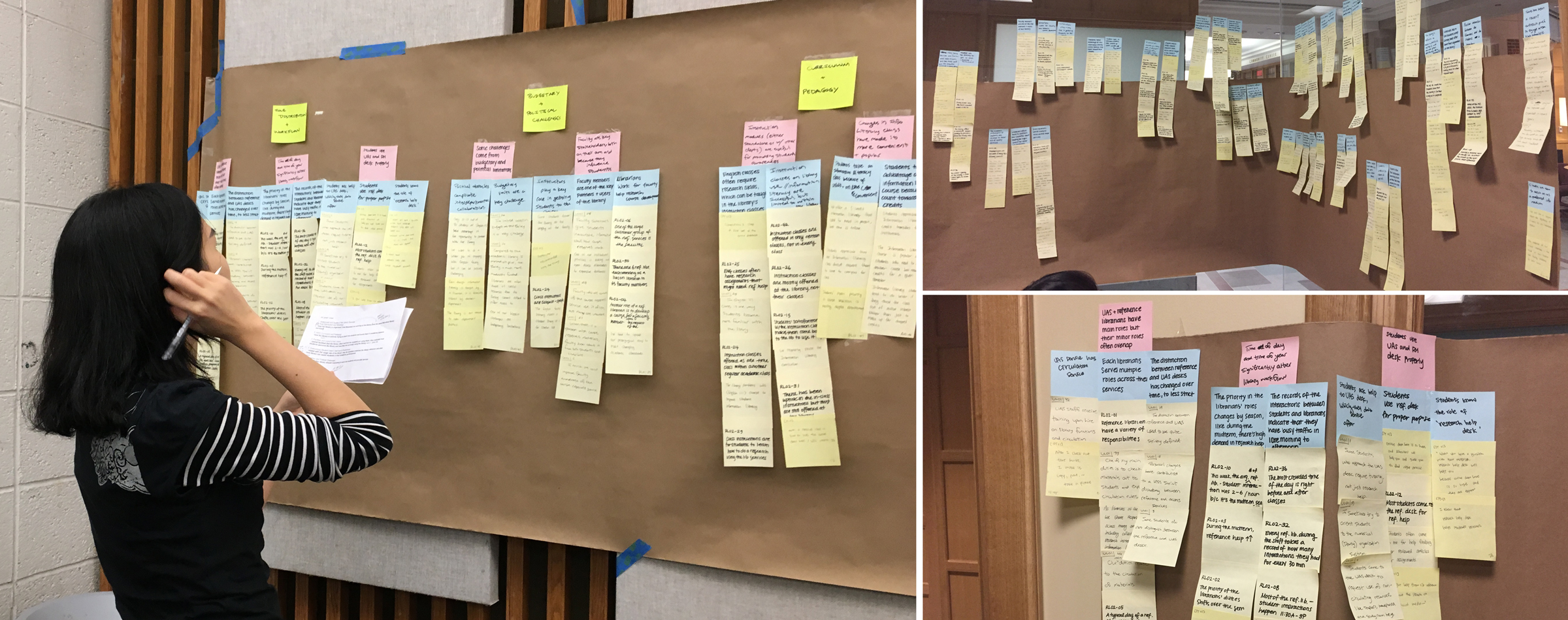BACKGROUND INFORMATION
Recently, the Richard W. Bailey Library staff have observed two concerning trends among student users: 1) poor user awareness of the roles of the User Services Desk and Research Help Desk, and 2) the proportionally low use of 24/7 virtual reference service compared to usage statistics from other local community colleges that participate in the same service. Puzzled by the discrepancy between these trends and the overall positive evaluations of the library from the annual student survey results and the rising number of gate counts in recent years, the library staff hopes to view a current service model to examine which areas need more improvements and to receive recommendations to solve those two problems above.

METHODOLOGICAL OVERVIEW
01. Background Research
There were several types of documentation from the client, including WCC student responses to a survey measuring satisfaction with library services, and library gate count data. We also researched relevant information about our client and its challenges from diverse resources such as journals, articles and statistics. Following are the topics of our research:
1) Academic libraries strategies for adapting to changing information needs in 21st century,
2) Features of community college libraries that influence the user satisfaction,
3) the impact of the Bailey library on the local community,
4) Reference service in libraries and user satisfaction thereof.
02. Interviewing and Observing
First, we prepared Contextual Inquiry Interviews by designing a comprehensive interview protocol. This protocol was developed based on background research. After completing this, we conducted interviews and observed interviewees in the library work environment. Each interview was conducted by a pair of team members. One team member served as the main interviewer while the other took notes. Each interview took about 60 minutes. We conducted five interviews with various stakeholders including two reference service librarians, one user access service librarian, and two student users. We made annotated notes for every interview and shared them along with the initial interview notes.
03. Interpreting and building affinity diagram
We conducted interpretation sessions for every interview. During these sessions, each main interviewer walked the rest of the team through the entire interview they had conducted so that other team members who did not participate the interview could hear details from and form insights about the interview content. To synthesize the data and findings from the interviews, we built an affinity diagram. Going through iterative grouping affinity notes process allowed us to discover underlying problems of our client, which became the foundations of our recommendations.

04. Brainstorming recommendations
Through previous three steps, we obtained data and identified key findings and trends in order to develop useful recommendations. After agreeing on suggestions across several key problem areas, we developed details and outlined the rationale for each recommendation.
RECOMMENDATIONS
To serve the core mission of the library by cultivating information search skills to promote lifelong learning and providing access to the comprehensive collection of library resources, it is important to understand that the users themselves have changed. Therefore, to address the underlying problem of the uniqueness of the student users’ information search or library usage preferences, the library should collaborate with the faculty, the administration, and the students to meet their mutual goals of education through complementary roles and tasks. Also meriting consideration would be some changes to the physical layout and appearance of the library, such as designating a consolidated point of service that merges the User Service Desk and Research Help Desk, or adding color-coded, 3D maps to better guide users through the facility.
View Final Report
